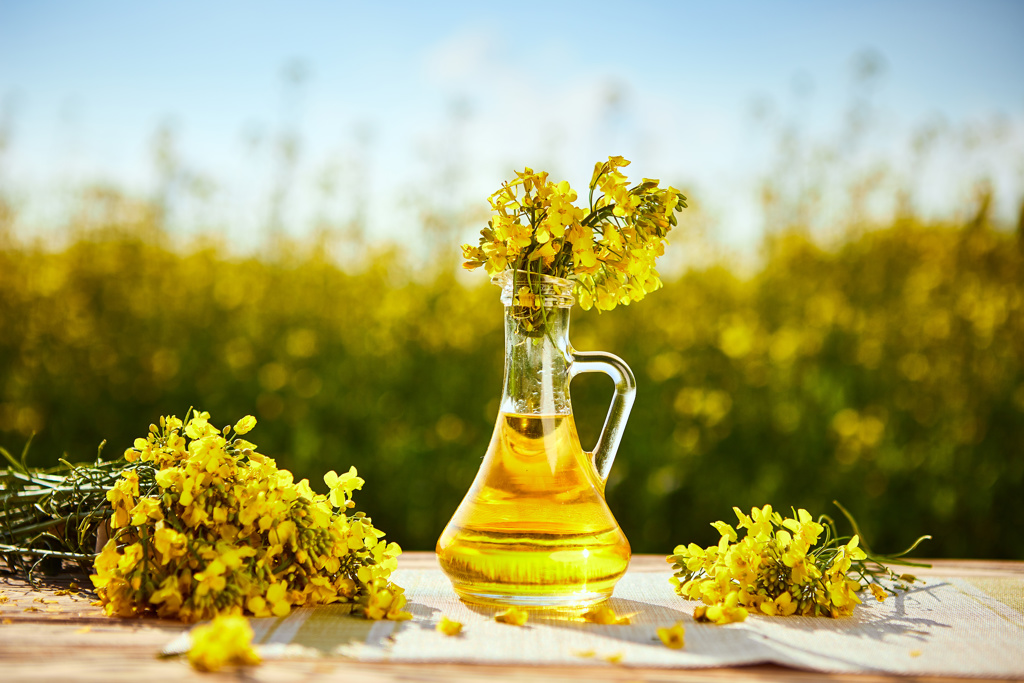Rapeseed Oil - the perfect all-rounder for your plant-based food processing requirements

In the past, the impressive benefits of Rapeseed Oil were often downplayed to high-profile contemporaries, including Avocado and Olive Oil.
While no one disputes the rock star reputation of these oils, brands and food manufacturers requiring alternative products that offer a stellar nutrient make-up and additional versatility need to look no further than our sustainably sourced, authentic, and traceable Rapeseed Oil range.
With its high smoke point, Rapeseed, also known as Canola Oil in the food and nutrition industry, is a flexible solution – excellent for deep frying and when used in cold emulsion applications, such as salad dressings and marinades.
The food industry certainly recognizes its many uses. Rapeseed Oil is today the third most consumed culinary oil in the world. In 2023, consumption reached a record 29.8 million MMT - marking a stellar 11% year-on-year increase.1
Strong growth is driven in part by the surge in requirements and consumption of plant-based vegetable oils, attractive pricing, all-round availability due to substantial global production outputs, research-backed functionality, shelf life, and ease of use. Critically we should not forget its great nutritional profile and qualities, in particular its high content of unsaturated fatty acids. There is increasing evidence that a diet rich in unsaturated fatty acids can offer meaningful health benefits.2
A heart-healthy choice
As a valuable source of heart-healthy fats, Rapeseed Oil is extracted from the seed of the rape plant, a flowering plant that belongs to the Brassica family. The product evolved from its initial use in industrial applications and is now a staple ingredient in various food processing applications.3
Long viewed as a healthy fat, new research has come to light that shows its potential role in managing nonalcoholic fatty liver disease, often called NAFLD. This liver problem affects people who drink little to no alcohol but is often seen in people who are overweight or obese.
NAFLD is becoming more common around the world as the number of people with obesity rises. It is the most common form of chronic liver disease, affecting about 25% of the world's population.4
In a study investigating nonalcoholic fatty liver, both rapeseed and olive oils decreased triglycerides, and fasting blood glucose, which could have a significant impact on this health condition.5
In addition, Rapeseed Oil is viewed as an excellent source of Vitamin E, a strong antioxidant that can support overall skin and eye health. Its high omega-3 fat or alpha-linolenic acid content is believed to provide numerous cardiovascular benefits that can potentially contribute to lowering blood pressure.
Versatility guaranteed
Rapeseed Oil is a firm favorite in food applications for its neutral flavor and many functional benefits.
It can contribute to a moister product, doesn’t change the flavor, and remains liquid, even at lower temperatures. This means that producers can use Rapeseed Oil across a wide range of applications - from frying, cooking, and baking to use in sauces, marines, and salad dressings.6
When it comes to emulsions such as mayonnaise it is a fantastic ingredient. Its light color provides a creamy texture, and it makes a real difference to snack foods, such as popcorn and crisps where its excellent frying capability can add a dimension of crispiness due to its high smoke point which enables flash frying. Rapeseed oil will not burn until it reaches a temperature of 400 degrees F..7
If you are looking for the perfect all-rounder edible oil solution, with traceability, sustainable supply chains, and affordability at its core, look no further than Oleon Nutrition’s Rapeseed Oil.
For more information on our range of food oil solutions, or formulations that can assist you on your vegetable-based culinary journey, please contact the Oleon Nutrition team today!
References:
- A Comprehensive Review of Health-Benefiting Components in Rapeseed Oil - PMC (nih.gov)
- Nonalcoholic fatty liver disease - Symptoms and causes - Mayo Clinic
- Nigam P, Bhatt S, Misra A, et al. Effect of a 6-month intervention with cooking oils containing a high concentration of monounsaturated fatty acids (olive and canola oils) compared with control oil in male Asian Indians with nonalcoholic fatty liver disease. Diabetes Technol Ther. 2014;16(4):255-261. doi:10.1089/dia.2013.017
6,7 What is rapeseed oil and what are the benefits and risks of using it? (webmd.com)

